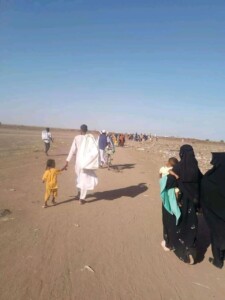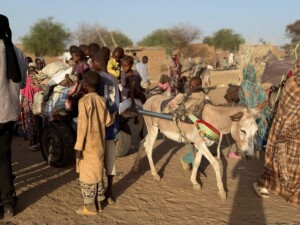Sudanese refugees in eastern Chad without food rations
Sudanese refugees in eastern Chad protest the suspension of food rations since early August.
Sheikh Yahya Adam Nadeef, head of the Congo camp for Darfur refugees in eastern Chad told Radio Dabanga that the Chadian organisation responsible for the distribution of food decided to divide the camp residents into three categories: capable, medium and vulnerable.
“They then announced that only the medium and the weak would receive food rations, but the refugees opposed the change, saying that they all are vulnerable and need support.”
Nadeef said that food distribution to “the capable” stopped in early August.
 Eastern Chad refugee camps across the North Darfur border (UNHCR, 2008)
Eastern Chad refugee camps across the North Darfur border (UNHCR, 2008)
Sudanese refugees in eastern Chad protest the suspension of food rations since early August.
Sheikh Yahya Adam Nadeef, head of the Kounongo camp for Darfur refugees in eastern Chad told Radio Dabanga that the Chadian organisation responsible for the distribution of food decided to divide the camp residents into three categories: capable, medium and vulnerable.
“They then announced that only the medium and the weak would receive food rations, but the refugees opposed the change, saying that they all are vulnerable and need support.”
Nadeef said that food distribution to “the capable” stopped in early August.
He appealed to the UN World Food Programme to resume its food distribution, “as we are all living in dire humanitarian conditions”.
Voluntary return
On July 31, 2017, the UN Children’s Fund (Unicef) reported there are 319,512 Sudanese refugees residing in camps in eastern Chad since 2003. They are face dwindling humanitarian support, with cuts to food rations, and limited livelihood opportunities and access to land.
In January this year, Khartoum instructed the acceleration of the voluntary repatriation of Sudanese refugees in Chad and the return of Chadian refugees in Sudan, saying the security situation in the border area improved greatly after a large disarmament campaign was conducted in the area in the second half of 2017.
A camp sheikh reported to this station in March this year that the refugees in Chad were suffering from a shortage of basic commodities. This causes more refugees to opt for voluntary return.











 and then
and then